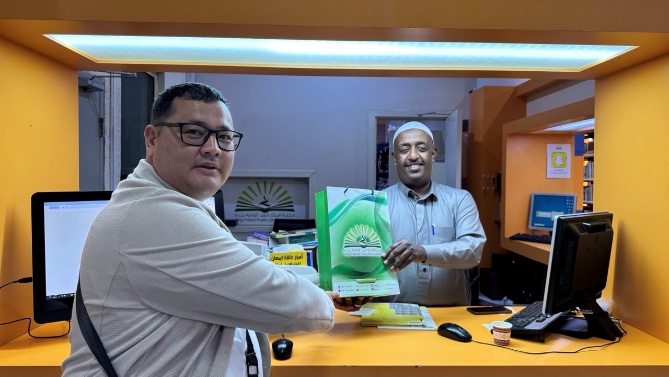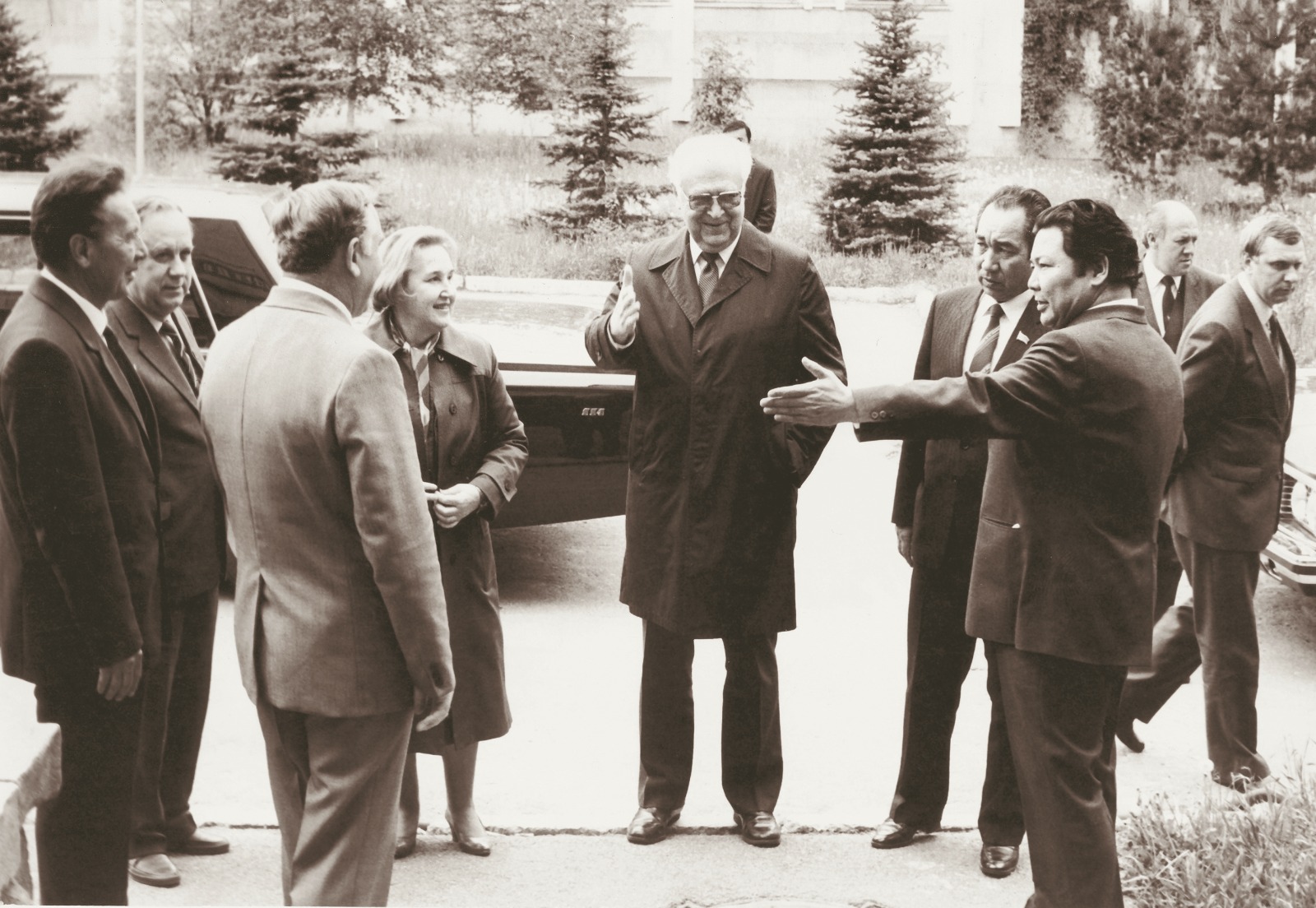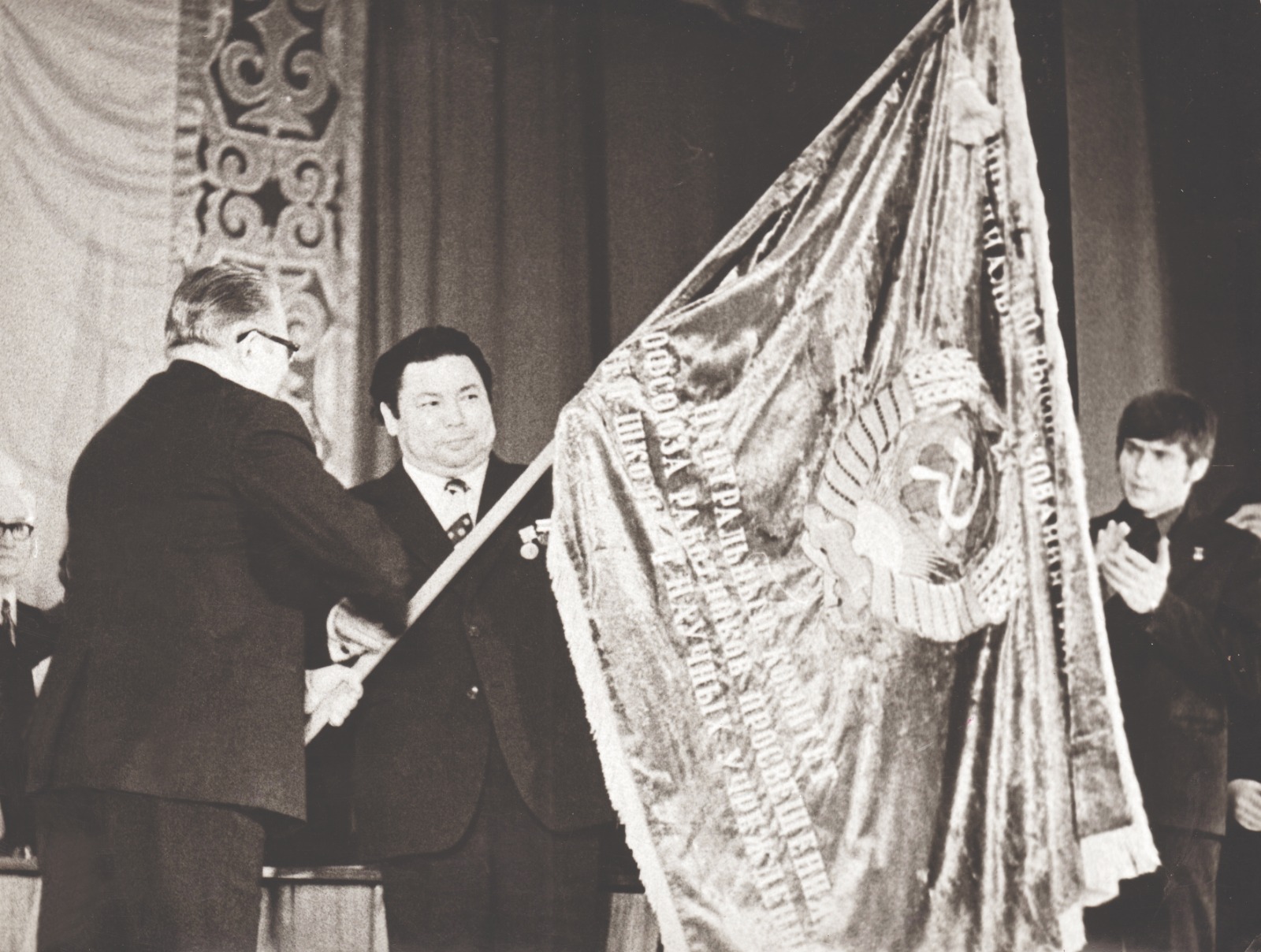Research of Manuscripts of Kazakh steppe scholars stored in Saudi Arabian libraries

From June 13-19, 2025, within the framework of the scientific project AP22686474 "Anthology of Arabic-language sources of Kazakh steppe thinkers in world archives," project leader Azamat Shutbayevich Zhamashev made a scientific trip to Saudi Arabian cities, conducted research in libraries and museums with manuscript collections, visited important historical and cultural centers, and exchanged views with qualified specialists and researchers.
The purpose of the trip was to study works related to the foundations of early religious education in Kazakh lands and philosophical and logical works from Saudi Arabian libraries and archives. Research at the scientific centers of Jeddah and Riyadh has revealed information about the history of the formation of science and education in the Kazakh land. Through the systematization of manuscripts in libraries and archives, data from domestic archival collections is being gathered for inclusion in the anthology of Kazakh steppe thought.
Specifically, we visited the King Fahd Public Library in Jeddah and the Central Library of King Abdulaziz University, closely familiarized ourselves with their collections, interviewed specialists, and researched works on history, ethnography, art, ethics, culture, and philosophy based on electronic and paper catalogs. As a result, several editions of works by scholars from Farab, Taraz, and Jend were found, such as Abu Nasr al-Farabi's "Views of the Citizens of the Virtuous City," "al-Jam' bayna ra'yay al-hakimayn" (Reconciliation of the Views of Two Philosophers), "Ihsa al-ulum" (Classification of Sciences), "al-Alfaz al-musta'mala fi al-mantiq" (Words Used in Logic), "Kitab al-huruf" (Book of Letters), treatises "Kitab al-milla wa nusus ukhra," "as-Siyasa al-madaniya," "Fusul muntaza'a" and works written by researchers who studied al-Farabi's views on philosophy, politics, and logic, along with other philosophers. We also found works such as Ishaq ibn Ibrahim al-Farabi's "Diwan al-adab," Abu Nasr Ismail ibn Hammad al-Jawhari al-Farabi's "Taj al-lugha," Abdullah Mubashshir at-Tarazi's "Intishar al-islam fi al-alam" (The Spread of Islam in the World), Abu Sulayman Dawud al-Binakati's "Rawdat uli al-albab" - "Tarikh Binakati," and Ahmad ibn Mahmud al-Jandi's "al-Iqlid Sharh al-mufassal." Additionally, we came across artifacts related to Islamic history in the manuscript section of the "Dar al-funun al-islamia" museum.
Subsequently, visits were made to Riyadh, where conversations were held with specialists from the King Fahd National Library and the King Faisal Center for Islamic Studies. Numerous copies of works related to the foundations of early religious education in the Kazakh land and philosophical and logical works were found in catalogs of manuscript and rare book collections. The methodology of catalogs developed by library researchers is effective and worthy of practical application.
In summary, manuscripts of the works and copies of published books were found in the collections of Saudi Arabian libraries. Most of the manuscripts are preserved in the libraries of Riyadh and Mecca. During the research, paper and electronic catalogs were examined, and direct work was done with the manuscripts themselves. The works of scholars from Farab, Ispijab, Taraz, and Itqan were mostly reviewed. As a result of the business trip to Saudi Arabia, we gained valuable information for the preparation of articles and monographs, established connections with libraries, and thus we can say that the purpose of the business trip was fully realized.



